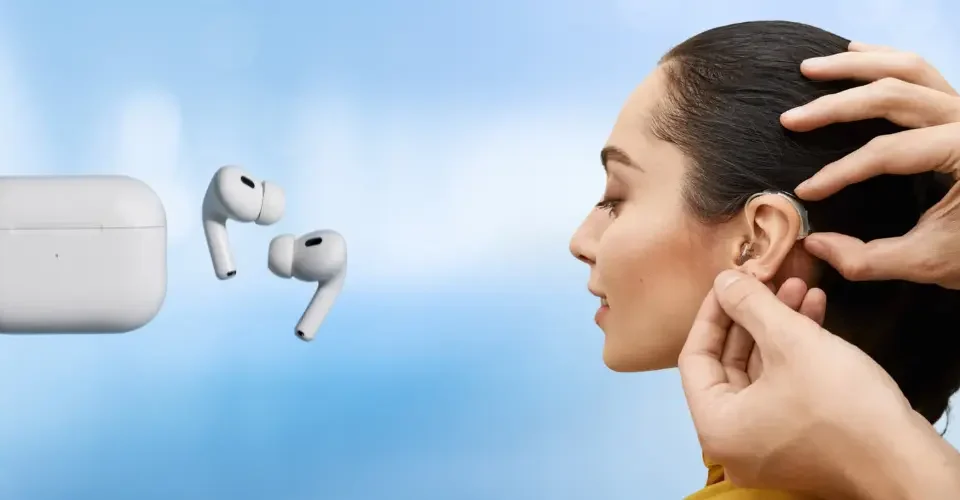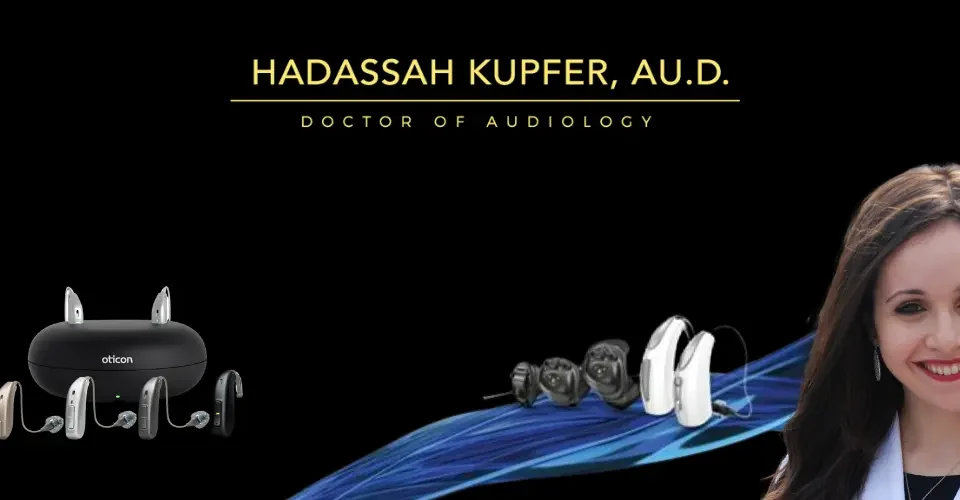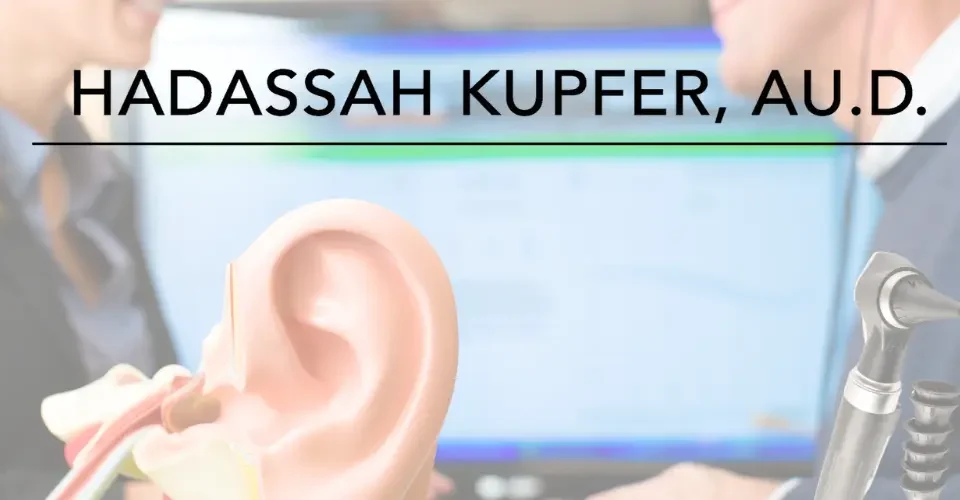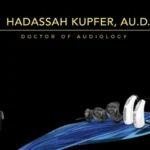
How can you select the best hearing aids
July 29, 2024
Can AirPods Pro 2 Replace Hearing Aids?
February 6, 2025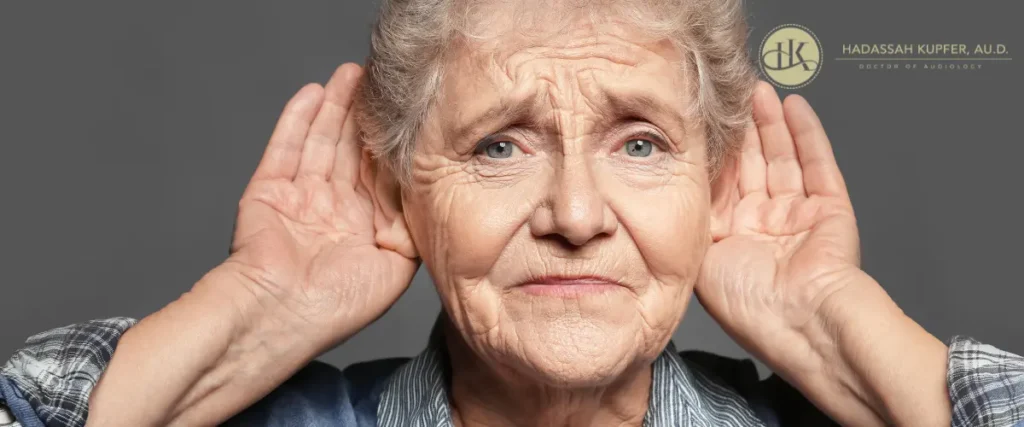
Understanding and Managing Age-Related Hearing Loss: A Comprehensive Guide
Hearing loss ranks as the third most prevalent chronic health condition among older adults. However, only 20% of those who could benefit from treatment actually seek help. Hearing problems may begin in background noise or group settings, but many delay seeking treatment until they struggle to communicate even in easy listening environments. On average, hearing aid users wait over a decade after their initial diagnosis to be fitted with their first set of hearing aids.
Age-Related Hearing Loss
Age-related hearing loss, or presbycusis, is a common condition affecting older adults. The primary cause is the natural wearing down of hair cells in the inner ear. Contrary to popular belief, these are not like hairs that you see! Hair cells are grass-like nerve fibers in the inner ear that conduct sound to the rest of the hearing nerve and eventually reach the brain. When sound reaches the inner ear (cochlea) with presbycusis, these weakened and damaged cells cannot properly transmit sound to the brain, resulting in sensorineural hearing loss. These changes are permanent and therefore an individual with sensorineural hearing loss requires a boost from hearing aids to compensate for this loss of hearing volume and quality.
Additionally, hearing loss can stem from changes affecting the eardrum or the bones of the middle ear, known as conductive hearing loss, which impacts how well sound moves into the inner ear. This affects some, but not all older adults. Usually a person with conductive hearing loss suffers from congestion of the nose or ear; sinus issues; middle ear fluid or frequent ear infections; or conditions such as otosclerosis. These conditions are best addressed by an ENT physician, as they are treatable and may not require hearing aids.
Older adults may not initially notice their hearing loss, as it typically progresses slowly. Over time, individuals may unconsciously make adaptations, such as turning up the volume on the TV or standing closer to a speaker, which can temporarily compensate for the hearing loss. However, when the loss becomes severe, these adjustments no longer suffice, and often, it is family members or friends who first recognize the hearing impairment.
Impact of Hearing Loss
The consequences of hearing loss vary widely depending on the individual and their specific type of hearing loss. The most common effect is a reduced ability to understand others, particularly in noisy environments. This can frustrate interactions with family and friends, interfere with learning in school, and affect job performance.
If untreated, hearing loss can lead to broader social and health impacts that extend beyond the impairment itself. These can include a reduced quality of life and well-being. People with untreated hearing loss tend to strain in order to focus and follow conversations with their limited hearing – which is an unnecessary burden on their eyes, brain and otherwise. Potential health repercussions of untreated hearing loss include headaches, muscle tension, and elevated stress and blood pressure levels.
Some studies have also linked untreated hearing loss in adults to depression, fatigue, social withdrawal, and impaired memory. When someone is not a part of the conversation, they naturally retreat inward and isolate themselves. Isolation is a huge contributor to depression and low self-esteem. Paranoia is also common when someone lacks the environmental awareness of hearing and is easily startled because they did not hear their surroundings.
In addition, the process of hearing stimulates the areas of the brain responsible for language, memory and attention. Without this crucial stimulation, these domains can slow down and weaken.
Benefits of Treatment
- Emotional Well-Being: The emotional benefits of treating hearing loss are significant. Any type of hearing loss can create a sense of disconnection from oneself and impact self-perception. Treating hearing loss can improve social participation, emotional well-being, and enhance the desire and ability to connect with friends and loved ones. This benefit affects the whole family!
- Slower Cognitive Decline: Recent studies have connected untreated hearing loss with a higher risk of developing dementia and accelerated cognitive decline.
- Reduced Tinnitus Symptoms: Over 50 million Americans experience tinnitus, a high-pitched ringing or clicking noise without an external sound source. Of those, 90% also have hearing loss. Treating hearing loss can alleviate tinnitus symptoms.
- Improved Personal Safety: Treating hearing loss enhances personal safety. Better hearing reduces the risk of falls, which can result in costly medical bills and physical discomfort. Improved hearing also makes individuals more attuned to their surroundings.
- Higher Performance and Earning Power: Enhanced ability to recognize and appropriately respond to speech, particularly in the workplace, can lead to increased productivity and earning power.
Identifying Age-Related Hearing Loss
Given the high prevalence of age-related hearing loss and its significant impact on quality of life, it is crucial for older adults and their caregivers to prioritize hearing health. Early detection and timely intervention can mitigate many of the negative consequences associated with untreated hearing loss.
Regular Hearing Check-Ups
Regular hearing check-ups are essential, especially for individuals over the age of 50. Early diagnosis can lead to more effective treatment options and better outcomes. Audiologists can provide comprehensive hearing evaluations and recommend appropriate interventions based on the severity and type of hearing loss.
Use of Hearing Aids
Hearing aids are the most common treatment for age-related hearing loss. Modern hearing aids are highly advanced, offering features such as noise reduction, directional microphones, and connectivity to smartphones and other devices. These features enhance the listening experience and improve the ability to communicate in various environments.
Assistive Listening Devices
Assistive listening devices (ALDs) can be used in conjunction with hearing aids or as standalone devices. ALDs can amplify sound in specific situations, such as during phone calls or while watching TV, further enhancing the hearing experience. The new category of OTC (over the counter) hearing aids can help people with mild hearing issues when worn in specific environments.
Overcoming Barriers to Treatment
Despite the benefits of treatment, several barriers prevent older adults from seeking help for hearing loss. These include stigma, lack of awareness, and cost. Addressing these barriers is crucial to improving access to hearing care.
Reducing Stigma
Education and awareness campaigns can help reduce the stigma associated with hearing loss and hearing aids. Normalizing hearing aid use and highlighting the positive impact of treatment can encourage more individuals to seek help.
Increasing Awareness
Healthcare providers play a key role in increasing awareness about the importance of hearing health. Regular screening for hearing loss should be integrated into routine health check-ups for older adults. Additionally, public health campaigns can raise awareness about the signs of hearing loss and the benefits of early intervention. A person can age gracefully with modern assistance and not just accept that they are “getting old.”
Making Treatment Affordable
Cost is a significant barrier to accessing hearing aids and other hearing treatments. Expanding insurance coverage for hearing aids and related services can make treatment more affordable and accessible. Additionally, programs that provide financial assistance for low-income individuals can help bridge the gap.
Key Takeaways
– Presbycusis is a type of hearing loss that gradually occurs as we age.
– One in three people ages 65–74 have hearing loss, and almost half aged 75 and older have hearing loss.
– While no single known cause of age-related hearing loss exists, it’s believed to be caused by changes in the inner ear that occur as people age, genetics, and lifetime exposure to loud noises.
– The most common symptoms of age-related hearing loss are perceiving sound as muffled, difficulty hearing in background noise, a persistent ringing sound, and difficulty hearing high-pitched sounds.
Imagine familiar voices and everyday sounds gradually becoming muffled or indistinguishable. For millions of older adults, this isn’t just a hypothetical scenario—it’s a reality. This phenomenon, known as presbycusis, is one of the most common types of age-related hearing loss.
Presbycusis Definition
Presbycusis, pronounced (prez-buh-KYOO-sis) is a type of sensorineural hearing loss that occurs gradually as we age. It’s one of the most common conditions accompanying aging, affecting about one in three people ages 65–74 and nearly half of those 75 and older in the United States. Essentially, presbycusis is a slow decline of high-pitched hearing in both ears.
Presbycusis generally begins in your 50s or 60s. It might be difficult to notice the extent of hearing loss with presbycusis because it’s often so slow and gradual.
Symptoms and Causes of Age-Related Hearing Loss
People with presbycusis often perceive sounds as muffled or less clear—imagine trying to listen to a radio station with poor reception. Higher-pitched sounds (like voices, especially children’s and women’s) are usually the hardest to understand. Conversations become challenging to follow, especially in noisy environments or when multiple people talk simultaneously. It may seem like people are mumbling, and you may have to ask people to repeat themselves. This can be frustrating in social settings, which may lead you to avoid these situations. Some people describe a persistent ringing or buzzing noise, known as tinnitus. You may notice you can’t hear the TV at volumes others find comfortable. Talking on the phone may also become increasingly difficult. These hearing loss symptoms can lead to feeling isolated and left out.
Common symptoms of presbycusis include:
– Difficulty hearing high-pitched sounds
– Ringing or buzzing in the ears (tinnitus)
– Feeling like people are mumbling or unclear when they speak
– Struggling to hear or understand people in loud spaces
– Unable to hear full conversations on the phone
Common responses to these symptoms include asking people to repeat what they say and listening to the radio or television loudly enough that it’s annoying to others.
Presbycusis Causes
No single cause of age-related hearing loss is known. Most commonly, it’s caused by changes in the inner ear. Genetics and lifetime exposure to loud noise (for example, from loud concerts, headphones, and military or industrial occupations) are thought to play a role.
The following factors contribute to age-related hearing loss:
– Family history
– Repeated exposure to loud noises
– Smoking
– Certain medicines, such as chemotherapy drugs for cancer
– Viral or bacterial ear infections
– Wax buildup
– Stroke
– Chronic diseases, such as diabetes, heart disease, kidney disease, high cholesterol, high blood pressure, thyroid disease
How is Presbycusis Diagnosed?
To diagnose presbycusis, your audiologist or otolaryngologist will start by examining your ear. Using an instrument known as an otoscope—a small, light-equipped magnifying device—they inspect your eardrum and outer ear canal for potential issues, such as damage to the eardrum, inflammation, or signs of infection.
You will then undergo testing, which starts with wearing earphones and responding to a series of beeping sounds. Words spoken at different volumes will be played, and you’ll be asked to repeat them. This helps the audiologist to chart your hearing sensitivity on an audiogram, a graph that aids in discerning the type, severity, and potential cause of your hearing loss. A typical audiogram for a person with presbycusis will show a bilateral decline in hearing abilities in the upper frequencies.
Online Hearing Tests
While visiting a hearing doctor is necessary for diagnosing and treating presbycusis, you may be curious about taking an online hearing test to screen yourself at home. While fun, these tests should be interpreted with caution and can be inaccurate.
When to See a Doctor
You should consider seeing a doctor for a hearing evaluation if you:
– Notice a sudden or rapid loss of hearing
– Experience tinnitus (ringing, buzzing, or other noises in the ear)
– Find you’re frequently asking people to repeat themselves
– Have difficulty following conversations when two or more people are speaking
– Struggle to hear in noisy environments or over the phone
– Often turn up the volume on the TV or radio to levels others find too loud
– Feel a sense of exhaustion or stress from trying to concentrate on hearing
– Experience dizziness or problems with balance
– Notice certain sounds seem overly loud or bothersome
– Hear better in one ear
– Experience ear drainage or pain
Regular hearing check-ups are also a good idea as we age, even if you don’t notice any immediate problems. Early detection and intervention can make a significant difference in managing presbycusis.
How is Age-Related Hearing Loss Treated?
Currently, there is no known cure for presbycusis. Fortunately, its impact can be minimized through assistive listening devices, such as hearing aids and cochlear implants. Hearing aids are the most common treatment for age-related hearing loss, from mild to severe. Cochlear implants are designed to treat profound deafness and are less commonly used in treating presbycusis. Therapeutic interventions, like family-centered counseling, can also improve quality of life, enhance social interactions, and boost overall mental health.
Intervention is important, not only for current quality-of-life improvements but also to negate the impact untreated hearing loss can have on your health. Recent studies have found people who used hearing restorative devices had a lower risk of long-term cognitive decline than those with uncorrected hearing loss.
Can Hearing Aids Help with Age-Related Hearing Loss?
The most common tool in the management of presbycusis is hearing aids. They can significantly help manage presbycusis by amplifying sounds, making it easier to hear and comprehend speech. They work by collecting sounds from the environment, amplifying them, and delivering these amplified sounds into the ears.
Modern hearing aids are also capable of suppressing background noise, making it easier to follow conversations in noisy environments, a common challenge for those with presbycusis.
Although over-the-counter hearing aids are available, it’s crucial to consult with a hearing doctor (audiologist or otolaryngologist) before beginning any form of treatment.
Can Hearing Aids Make Hearing Loss Worse?
Improper use or incorrectly fitted hearing aids could potentially cause problems. For instance, if the volume is consistently set too loud, it might cause discomfort or headaches. Relying on only one hearing aid when bilateral hearing aids are recommended might lead to auditory deprivation in the non-amplified ear, where the brain loses some of its ability to interpret sounds due to lack of stimulation. Regular follow-ups with your hearing professional will ensure your hearing aids are properly fitted, the settings are optimal, and they are used correctly. This is the best way to make sure they are benefiting your hearing without causing additional issues.
Considerations in Hearing Aids for Presbycusis
Choosing the right hearing aid for presbycusis involves several factors:
Hearing aids come in four main types: Behind-the-ear (BTE), in-the-ear (ITE), in-the-canal (ITC), and completely-in-canal (CIC). Some people prefer more discreet hearing aids, while others might not have a preference. The style best suited for you may be determined by other factors.
Type of Hearing Loss: The kind and severity of your hearing loss will dictate the most suitable type of hearing aid. For instance, for those with profound hearing loss, a more powerful behind-the-ear model might be recommended.
Lifestyle Needs: Your daily activities and lifestyle can influence the type of hearing aid best for you. If you frequently find yourself in noisy environments, a hearing aid with good noise reduction capabilities may be beneficial. Those who swim regularly will want a water-resistant design.
Manual Dexterity: Some hearing aids are extra small and may be difficult to handle for people with issues related to fine motor skills, arthritis, or visual impairment. In such cases, a larger model might be more suitable.
Budget: Hearing aids vary in price, and your budget will play a role in your choice. It’s important to balance cost considerations with the quality and suitability of the device.
Additional Features: Some hearing aids come with added features, such as connectivity to smartphones or televisions, rechargeable batteries, or tinnitus-masking sounds. You’ll want to consider how important these features are to you.
How is Age-Related Hearing Loss Prevented?
While age-related hearing loss is largely unavoidable, especially if there is a strong family history (genetic component), certain strategies might help delay its onset. These include avoiding exposure to loud noises (like at concerts or from headphones, construction equipment, fireworks, guns, lawn equipment, motorcycles, and airplanes), maintaining good cardiovascular health, not smoking, and avoiding ototoxic drugs (medications that can damage the ear), whenever possible. Earplugs or protective earmuffs should be used when you might be exposed to loud noises.
Presbycusis, or age-related hearing loss, is a prevalent issue that affects many older adults and gradually impairs their ability to perceive sounds. It can significantly impact someone’s quality of life and mental health. The causes are usually a combination of age and environmental factors, but prevention strategies can slow progression. The diagnosis involves working with an audiologist or otolaryngologist.
The good news is there are effective treatment options, generally involving hearing aids. These devices have evolved to offer sophisticated features, like automatic adjustments to changing environments, Bluetooth connectivity to mobile apps, and advanced background noise reduction. Hearing aids are designed to not only enhance hearing but also enrich the overall quality of life for people with presbycusis by allowing them to continue to enjoy their daily activities and social interactions.
Share:
More Posts
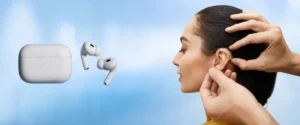
Can AirPods Pro 2 Replace Hearing Aids?
With the introduction of AirPods Pro 2, Apple has taken a significant step in making assistive hearing technology more accessible. Equipped with features such as Conversation Boost and Adaptive Transparency, these earbuds offer an entry-level solution for individuals experiencing mild hearing difficulties. However, while AirPods Pro 2 may provide temporary relief, they are not a replacement for professionally fitted hearing aids.
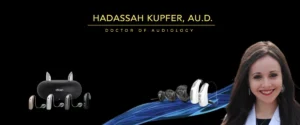
How can you select the best hearing aids
How Can You Select the Best Hearing Aids? Hearing loss, either complete or partial, can affect so many people, especially of a certain age. If
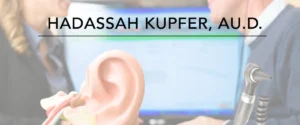
Why is a hearing test important
Why is a Hearing Test Important? It can be easy to overlook your hearing health. This is something that a lot of people simply forget about,

How to find a audiologist near me
The Ultimate Guide: How to Find a local Audiologist To find the best audiologist, most people begin with a Google search, using terms like “best audiologist


